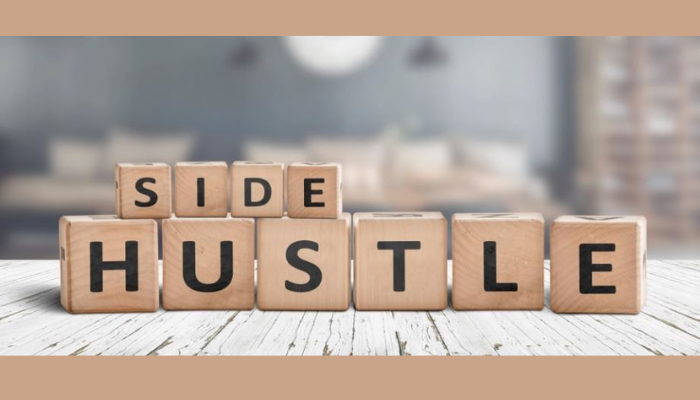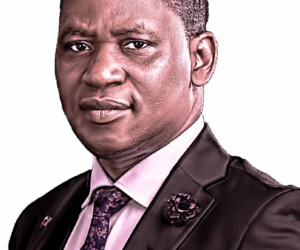On a weekday morning in Lagos, a banker in a meeting for 5pm and by 5:30 p.m., she’s “on the road.” Between those hours, she’s at a mini shop she runs with her cousin, arranging stock and calculating transfers. Her side business doesn’t clash with her main job; it completes it.
That mindset sits at the centre of what I call The Side Hustle Bias. It is the belief that true security comes from visible, self-directed income streams, even when formal employment seems stable.
The Psychology of Backup
For Nigerians, your side hustle is insurance.
According to a Jobberman Nigeria survey (2023), nearly 60% of employed Nigerians earn from at least one additional source, mostly informal trading or freelance work (Jobberman Nigeria Report, 2023). This isn’t a fad. Our economy in Nigeria is marked by sudden policy changes and inconsistent pay cycles; diversification of effort is emotional and risk management.
Behavioral scientists describe this instinct as redundancy bias. This is a preference for backup options even when the primary one suffices. It reduces anxiety by turning uncertainty into optionality. Nigerians have extended it beyond finance into lifestyle. A skill, a store, a digital hustle all serve as portable safety nets.
Self-Trust Over System Trust
The Side Hustle Bias reflects a wider issue: Nigerians trust personal effort more than institutions. A 2022 Edelman Trust Barometer report noted that fewer than 45% of Nigerians express confidence in their formal employers, but over 70% say they “fully trust themselves” to create income opportunities and survive (Edelman Trust Barometer, 2022).
This explains why entrepreneurship thrives even in high-risk climates. Many professionals pursue side hustles not for profit alone but for psychological equilibrium. The hustle is proof that survival is still self-driven.
Read also: New pension rule opens window for ‘side hustles’ savings
Time as Portfolio
Nigerians treat time the way investors treat capital. A worker might devote weekdays to payroll labour and evenings to digital resale, tailoring, or tutoring. Sociologists at the University of Lagos (2021) found that some urban youth describe multiple gigs as “spreading energy,” viewing idle time as wasted yield on personal potential.
The side hustle, therefore, is not a distraction. Every added activity is a hedge against financial instability and stagnation; an emotional version of portfolio theory applied to daily life.
The Status of Busyness
Culturally, side hustles also confer status. Being busy communicates relevance. A marketer who says “I’m into skincare too” sounds resourceful, not overworked. Nigerians equate visible effort with discipline and self-worth.
This perception traces back to communal economics. In many families, income is expected to circulate. The more ventures you mention, the more capable you appear. The bias turns busyness into virtue.
Yet there’s tension beneath it. The constant motion can blur boundaries and breed fatigue. The Harvard Business Review’s 2022 Global Burnout Study ranked Nigeria among the top 10 countries where multi-job professionals report “chronic mental strain.” The psychological safety of multiple hustles sometimes erodes into exhaustion when every free hour becomes monetised.
Digital Amplifiers
Technology has turned The Side Hustle Bias into infrastructure. WhatsApp status pages function as storefronts; Instagram doubles as catalogue; logistics services like GIG and Kwik enable micro-distribution. Nigeria’s fintech sector feeds the cycle: small online payments make informal transactions effortless.
A 2024 report by Nigerian Startup Ecosystem Database (Disrupt Africa) estimated that over 33% of new fintech users are side-business operators processing less than N50,000 per day (Disrupt Africa, 2024). The infrastructure of convenience now sustains the psychology of independence.
The Hidden Costs
Still, The Side Hustle Bias reshapes priorities. Many workers invest more focus in backup income than in their main role. Employers see this as a distraction, but for staff, it is emotional insurance. If the job ends, the hustle stands.
Brands targeting Nigerians must recognise this dual identity. Consumers are not only employees or parents, but they are also micro-entrepreneurs managing mini portfolios of side hustles. Products that empower flexibility such as data bundles, modular savings, pay-as-you-use services resonate because they fit this side-hustle rhythm.
Business Implications
1. Design for dual lives. Offer flexible payment timelines, low-commitment contracts, or mobile tools that let users blend formal and informal work.
2. Celebrate productivity narratives. Marketing that frames side hustles as smart, not desperate, aligns with national pride in resourcefulness.
3. Simplify multitasking. Apps and services that consolidate tasks such as inventory, logistics, payments reduce friction for multitaskers.
4. Acknowledge fatigue. Messaging that promotes efficiency or rest will stand out in a culture that glorifies endless motion.
Conclusion
The Side Hustle Bias is Nigeria’s behavioural mirror. It shows how people redefine stability through self-reliance. Each extra gig, product resale, or freelance project is less about ambition than about insurance against helplessness and being stranded.
For policymakers, it signals where to invest – micro-infrastructure, power reliability, digital credit. For brands, it highlights a truth that, in Nigeria, your customer probably works two jobs. The winning products are those that respect the rhythm of a life lived in parallel lanes.
The side hustle is not a distraction from work. It is how workers survive uncertainty.









